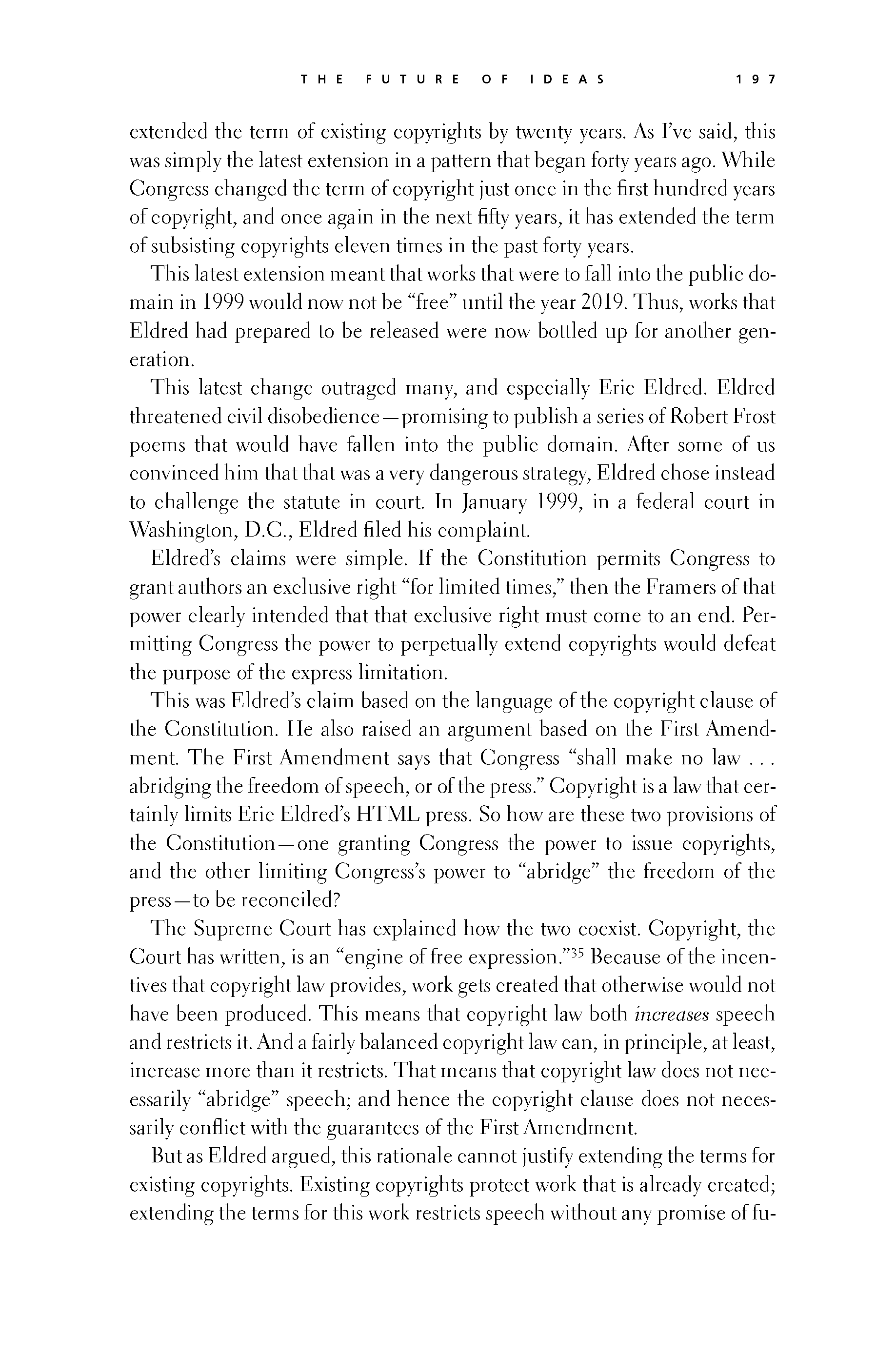 p196 _
-chap- _
toc-1 _
p197w _
toc-2 _
+chap+ _
p198
p196 _
-chap- _
toc-1 _
p197w _
toc-2 _
+chap+ _
p198
extended the term of existing copyrights by twenty years. As I've said, this
was simply the latest extension in a pattern that began forty years ago. While
Congress changed the term of copyright just once in the first hundred years
of copyright, and once again in the next fifty years, it has extended the term
of subsisting copyrights eleven times in the past forty years.
This latest extension meant that works that were to fall into the public do-
main in 1999 would now not be "free" until the year 2019. Thus, works that
Eldred had prepared to be released were now bottled up for another gen-
eration.
This latest change outraged many, and especially Eric Eldred. Eldred
threatened civil disobedience -- promising to publish a series of Robert Frost
poems that would have fallen into the public domain. After some of us
convinced him that that was a very dangerous strategy, Eldred chose instead
to challenge the statute in court. In January 1999, in a federal court in
Washington, D.C., Eldred filed his complaint.
Eldred's claims were simple. If the Constitution permits Congress to
grant authors an exclusive right "for limited times," then the Framers of that
power clearly intended that that exclusive right must come to an end. Per-
mitting Congress the power to perpetually extend copyrights would defeat
the purpose of the express limitation.
This was Eldred's claim based on the language of the copyright clause of
the Constitution. He also raised an argument based on the First Amend-
ment. The First Amendment says that Congress "shall make no law...
abridging the freedom of speech, or of the press." Copyright is a law that cer-
tainly limits Eric Eldred's HTML press. So how are these two provisions of
the Constitution -- one granting Congress the power to issue copyrights,
and the other limiting Congress's power to "abridge" the freedom of the
press -- to be reconciled?
The Supreme Court has explained how the two coexist. Copyright, the
Court has written, is an "engine of free expression."[11-35] Because of the incen-
tives that copyright law provides, work gets created that otherwise would not
have been produced. This means that copyright law both _increases_ speech
and restricts it. And a fairly balanced copyright law can, in principle, at least,
increase more than it restricts. That means that copyright law does not nec-
essarily "abridge" speech; and hence the copyright clause does not neces-
sarily conflict with the guarantees of the First Amendment.
But as Eldred argued, this rationale cannot justify extending the terms for
existing copyrights. Existing copyrights protect work that is already created;
extending the terms for this work restricts speech without any promise of fu-
[[197]]
p196 _
-chap- _
toc-1 _
p197w _
toc-2 _
+chap+ _
p198